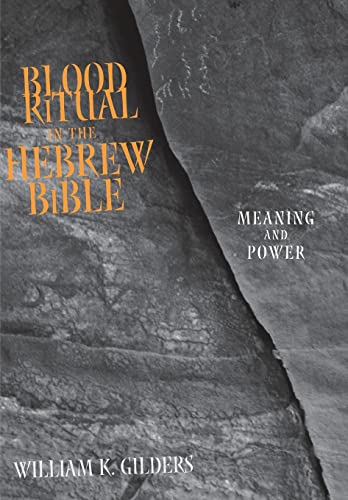Ever wondered about the story behind your name? Well, if you’re an Andrew, you’re in for a treat. We’re about to jump into the rich history, intriguing meaning, and fascinating facts about your name.
In this guide, we’ll explore the roots of the name Andrew, unearthing its origins and significance. From biblical references to cultural significance, you’ll discover why Andrew isn’t just a name—it’s a testament to strength and bravery.
Understanding the Meaning of Andrew
Diving deeper into Andrew, an exploration of its etymology, the roots of its meaning, is a starting point.
The Etymology of Andrew
Peeling back the layers of Andrew, we unearth its Greek origin. In ancient Greek, it’s derived from the term ‘Ανδρέας’ (Andréas). This term itself, interestingly, has its roots in the adjective ‘ανδρεῖος’ (andreios), a powerful testament to the masculinity and courage that it signifies.
What Does Andrew Mean?
Interpreting Andrew, it’s stands synonymous with ‘manly’ or ‘brave’. This connotation is a reflection of its Greek roots. So, when you’re addressing an Andrew, you’re essentially paying a subtle compliment to his strength and bravery. In contrast, the Bible sheds light on an alternate, lesser-known understanding. Here, Andrew holds the distinction of being a ‘bringer of men to God’, emphasizing spiritual leadership.
The Cultural Significance of Andrew
Unfolding the cultural layers tied to Andrew, you’ll find that it holds deep-rooted symbolic meanings that span across different social and religious contexts. Turn your attention to further explore its significance in religious texts and historical references.
Andrew in The Bible
Venture into the sacred pages of the Bible, specifically, the New Testament. Andrew surfaced as one of the 12 Apostles. A former disciple of John the Baptist, he became the first of Jesus’ disciples, earning his name a symbol of spiritual awakening and leadership. His apostolic symbol, an X-shaped cross, has been mentioned in religious history as ‘St. Andrew’s cross’. According to ancient accounts, Andrew’s faithfulness towards his conviction led him to choose an X-shaped cross for his martyrdom, reinforcing his significance as a figure of strength and courage in the Biblical context.
Andrew in other Religious Texts
Aside from Christianity, Andrew features in other religious texts as well. In Eastern Orthodox tradition, Andrew, known as ‘Πρωτόκλητος’ (Protokletos), the first-called, plays a important role. Tradition suggests his voyage to Byzantine, where he established the Christian Church, placing him at the forefront of missionary work. In Scottish mythology, Andrew has the honored position of Patron Saint, cementing His name as a symbol of nationalism and independence. His image often appears on Scottish Declarations to signify freedom, further spotlighting his cultural importance.
Andrew in Historically Notable Figures
History presents many notable figures named Andrew, further amplifying its grammatological resonance. From Andrew Jackson, the 7th President of the United States, who played a crucial role in important reforms in American history, to the industry-renowned pop artist Andrew Warhol, the name Andrew has commanded respect in various historical periods. Notably, these figures played pivotal roles in shaping societal, cultural, and political narratives, reinforcing the perception of Andrew as a name associated with leadership and prominent standing in society.
Exploring the Frequency of the Name Andrew
Moving from history, let’s step into contemporary times and investigate into the recent popularity and usage of the name Andrew.
Andrew in the Past Decades
Over the past few decades, the frequency of the name Andrew has seen interesting patterns. Social Security Administration records indicate that in the 1980s, Andrew ranked among the top 10 most popular names in the United States. By the late 1990s, it had a strong foothold in the top 30, reflecting its consistent appeal.
Consider, for example, the year 1985 when Andrew claimed the 6th spot for boys’ names. Compare that to 1999 when it held onto the 24th position. This robust performance shows Andrew’s staying power as a popular and respected choice for parents.
| Year | Rank |
|---|---|
| 1985 | 6 |
| 1999 | 24 |
Andrew in 2021
Fast-forward to recent times, and you’ll find the frequency of the name Andrew has slightly diminished. But, it’s important not to mistake this decrease for a drop in significance. Records indicate that Andrew remains a well-appreciated classic. According to the latest data, in 2021 Andrew secured a position within the top 50 male names in the U.S, demonstrating its enduring appeal that doesn’t sway easily with changing trends.
With these dynamics in mind, it’s clear that the name Andrew navigates through ebb and flow and firmly holds its ground in the area of popular names.
Pervasiveness of Andrew Around the World
As examined in the preceding section, Andrew’s etymology exudes courage and leadership, extending beyond English-speaking territories. International reverence for the name is eminent, with Andrew becoming a common choice in a plethora of non-English speaking countries. The name further transcends linguistic barriers, manifesting in various forms across diverse languages.
Andrew in Non-English Speaking Countries
This ubiquitous presence validates Andrew’s universal popularity, its resonance not confined by language or culture. For example, Russia recognizes ‘Андрей’ (Andrey) as a popular choice; its feminine counterpart ‘Андреа’ (Andrea) is prevalent in several European countries such as Italy, Spain, and Portugal. Similarly, in France, ‘André’ holds a perennial charm, while Germany sees ‘Andreas’ as a preferred choice. Arabic-speaking regions also embrace the name in the form ‘أندرو’ (Andrew), reiterating its widespread acceptance.
Variations of Andrew in Different Languages
Apart from its popularity in native forms, Andrew’s linguistic variants echo its universal appeal. From ‘Andreas’ in Greek and German, ‘André’ in French, ‘Andrea’ in Italian, Portuguese and Spanish, ‘Andrus’ in Estonian, to ‘Андрей’ (Andrey) in Russian – the name spans continents and cultures. Each variant, carrying the core essence of ‘manly’ or ‘brave,’ exhibits the intriguing versatility of Andrew across the linguistic industry. The multi-culturality of Andrew exemplifies its worldwide acceptance, cementing its status as a name of timeless charm and enduring courage.
Influence of Name Andrew on Personality Traits
Exploring into the understanding of how a person’s name could potentially shape their character yields fascinating insights. This section seeks to untangle the impact of the name Andrew on the bearers’ personality traits.
Studies on Name Impact
Research indicates that a person’s name can influence their career path, social interactions, and even traits. In psychology, it’s termed the “name-letter effect,” highlighting an unconscious preference people have for things that begin with the same letter as their initial(s). For instance, a 2010 study in ‘The Journal of Consumer Research’ found an uncanny correlation between people’s names and their occupations, demonstrating letters in a name can unconsciously sway career choices.
Another intriguing study published in “Psychology Science” by Belgian researchers revealed that name-based stereotypes can affect how others perceive your personality traits. They found that people tend to associate names that are easier to pronounce with positive traits, affirming the important influence of names on perceived character.
How The Name Andrew Relates to Character Traits
Drawing from the root meaning of Andrew as “manly” or “brave,” individuals named Andrew often display an inclination towards strength and courage. This correlation doesn’t guarantee attributing personality traits based on their name. But, it’s an interesting viewpoint to consider.
A character study based on the database held by ‘Kabalarians Philosophy’ suggests Andrews are typically drawn towards stable, orderly environments. They often possess analytical minds, appreciating system and order in their life. Also, their penchant for understanding the inner workings of things means they often gravitate towards scientific or technical fields.
Virtuous traits such as courage, loyalty, and spiritual awakening associated with the biblical and cultural symbolism of Andrew also subtly reinforce the persona of an individual named Andrew. They are often known for their leadership qualities, mirroring the prominent position of Andrew in religious scriptures and historical narratives.
Nonetheless, it’s crucial to remember that while these traits might generally coincide with individuals named Andrew, exceptions always exist. The interplay of countless factors like individual experiences, family background, and cultural environment are the true tapestry weaving one’s personality, with a name playing just a part.
Conclusion
So, you’ve journeyed through the rich tapestry of the name Andrew. You’ve delved into its Greek roots and biblical significance, and seen how it’s synonymous with courage and masculinity. You’ve understood its cultural and religious importance, from the New Testament to Eastern Orthodox tradition, and its status as a symbol of nationalism in Scotland. You’ve seen how the name Andrew has been borne by leaders and prominent figures, reinforcing its association with strength and prominence.
You’ve also looked at the ebb and flow of Andrew’s popularity in recent times, and even though some fluctuations, it’s clear that Andrew remains a classic and respected choice. You’ve noted its global appeal, transcending cultural and language barriers, with its core essence of bravery and manliness resonating universally.
Finally, you’ve explored the intriguing influence of the name Andrew on personality traits. While it’s fascinating to see correlations between the name and certain characteristics, it’s important to remember that a name is just one piece of the puzzle in shaping one’s personality. So, whether you’re an Andrew yourself, know an Andrew, or are considering the name for a future child, it’s clear that this name carries a legacy of strength, courage, and enduring significance.
Related Posts:
- Unveiling the Spiritual Mystique: The Deeper Meaning of Cucumbers
- Unlocking the Secrets of the White Lion: Symbolism, Mythology, and Impact
- Good vs Evil: Unraveling the Biblical Interpretations of Gnomes
- Unveiling the Mystical Significance: The Spiritual Meaning of the Boxelder Bug
- Unlocking the Mysteries: The Spiritual Significance of the Letter ‘J’
- Unlocking the Legacy of ‘Andrew’: A Comprehensive Guide to Its Meaning & Significance
- Unlocking the Spiritual Significance of the Name Cameron: An Enlightening Journey
- Unlocking Inner Growth: The Double Crown’s Spiritual Meaning & Its Relevance Today

























